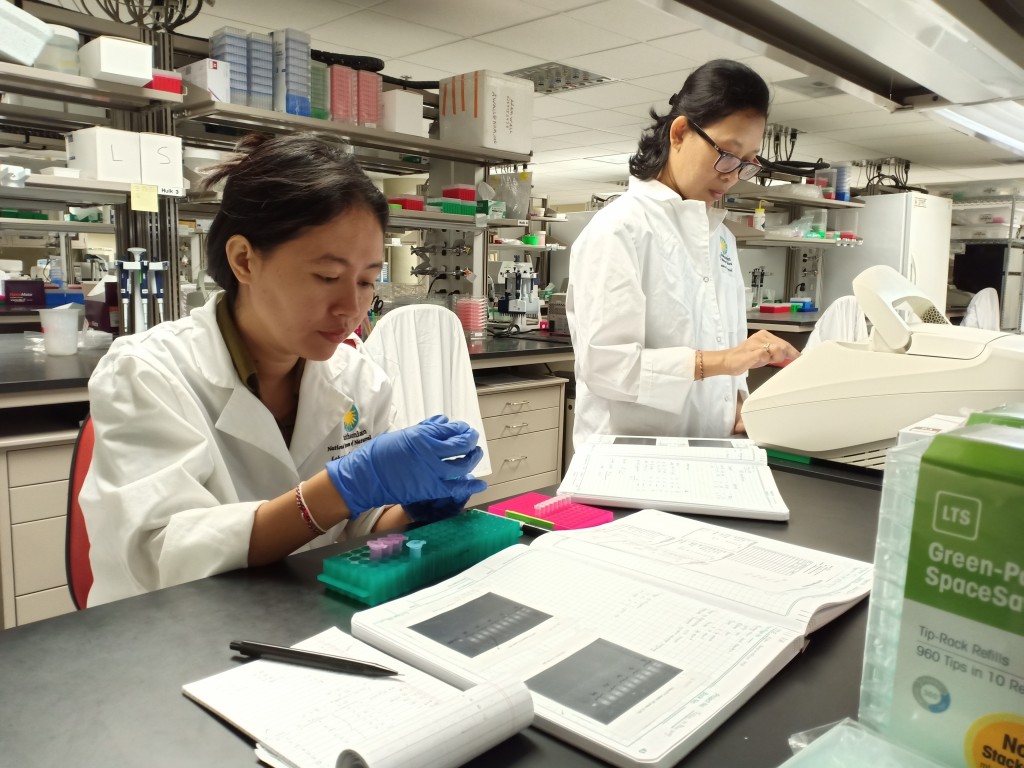Fellowship Training at the National Museum of Natural History, Smithsonian Institution

On April 27, 2019, two staff of Yayasan Biodiversitas Indonesia (BIONESIA) attended training at the National Museum of Natural History (NMNH), Smithsonian Institution – Washington DC as fellowship researchers. The training lasted for three months starting from April 27thto July 27th, 2019. This training activity was related to the BIONESIA research project entitled “Delineating stock structure for tuna fish within Sulu Sulawesi Regions”, which collaborated with Dr. Allen Collins and Dr. Bruce Collette at the Smithsonian Institution. These activities were one of the programs on the project funded by USAID.
BIONESIA’s research staff, Ni Putu Dian Pertiwi and Ni Luh Astria Yusmalinda were supervised by Dr. Allen Collins and guided by Dr. Bruce Collette as Co-Principal investigator of the Longtail Tuna research project. The aim of the training was to study the Next Generation Sequencing (2BRAD) methods – a genetic method to study the population structure. By studying this method, it is expected to produce data to describe the status of tuna stocks, especially for the Longtail tuna in the Sulu Sulawesi Sea and across Indonesia. The exact and accurate status of tuna stock can be used in taking steps to manage tuna and conservation in the future.
Library preparation work for 2b-RAD methods by Ni Putu Dian Pertiwi and Ni Luh Astria Yusmalinda
The training was concurrent with the Diponegoro University (UNDIP) PEER project, entitled “One Fits All; Developing Decapod Biodiversity Research for Education, Conservation, and Research Benefit”. The research staff attended for this project is Andrianus Sembiring, which supervised by Dr. Christopher Meyer; and aim to collect the genetic diversity of decapod collected from dead coral head across Indonesia’s reef.
During this fellowship training, we also assist by Dr. Kenan Matterson – researchers who works using 2b-RAD methods with various organism; and also Abby Uehling – an internship students who work with decapod and ARMS data. During the entire program, the laboratory work and analysis were conducted both in NMNH Museum Support Center (MSC) and NMNH Laboratories of Analytical Biology. We also managed to do data analysis on our mitochondrial DNA (mtDNA) that we collected using sanger-sequencing methods, and have the data presented during the informal meeting with United States Agency for International Development (USAID) and National Academy of Science (NAS).
By conducting this fellowship-training program, we were hoping to increase the staff’s capacity building related to advance molecular genetic research. Thus be able to apply this research and methods in Indonesia. The program is also aim to increase collaborative research between Indonesia and US researchers.